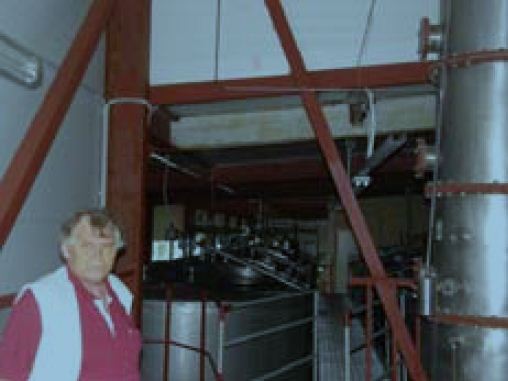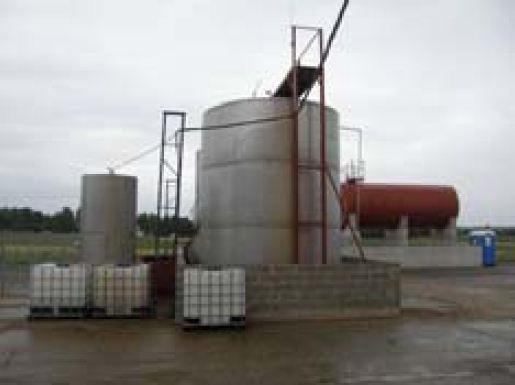Base de données des projets PDR
Bio-Ethanol Plant Construction
Summary
A plant constructed to produce bio-ethanol from processing the large volume of animal and crop waste and sugar beet now grown on previously fallow land. Eight full-time and 10 part-time jobs have been created and benefited the local community.
Background
A large company farm, "Kadarbiku", wanted to make better use of available land resources and minimise production waste by establishing a bio-ethanol plant. Utilising plentiful raw material in the form of animal and crop residue waste, the farm would also bring into production previously fallow land to produce this bio-fuel.
Objective
The main aim of the project is to establish a bio-ethanol plant and produce this form of bio-fuel by making use of the ample farm raw material in the form of animal and crop waste, along with sugar beet grown on previously fallow land. This would diversify significantly the enterprise and income base of the farm, increase employment for local people, significantly reduce farm waste, and contribute towards lowering the use of fossil fuels.
Main activities
Taking the project from conceptual stage through construction to making the plant fully operational were the main activities. A Spanish company experienced in planning and construction of bio-ethanol plants was contracted to manage the work, complemented by local expertise and labour. Training was provided on distillation, fermentation, lab work and other operational aspects. Some equipment was able to be sourced in Estonia, with the remainder imported from Spain.
Results & Benefits
Not only has establishment of the plant provided diversified income for the farm, it is an environmentally sustainable solution to management of farm waste, and a profitable way to use land that was previously fallow due to low gross margins. Residual waste from the sugar beet is given to neighbouring farmers for animal feed. Additionally, the plant has created 8 full-time and 10 part-time jobs.
Lessons learnt
The original plans included sourcing all equipment from Spain. However, thorough searching proved fruitful as some equipment was able to be sourced from Estonia, saving on the total cost of investment. This required change of documentation and approval for Estonian suppliers. The project is a good example of how innovative ideas can help overcome constraints on a farm, with benefits for the owners, new employees and the environment.
Project location and other information
Harju County in north-eastern Estonia
Region
Põhja-Eesti
RDP Territory
Estonia
Total project cost (€)
3 050 675
EAFRD contribution (€)
610 135
National contribution (€)
28 981
Private contribution (€)
2 411 558
Project website
Contact name
Ants Pak
Telephone
+372 671 627
Languages for contact
Estonian
At a glance
Country
Estonia
Final beneficiary type
Individual farmers
Budget range
> €500 000
Start date:
01/02/2008
End Date:
31/12/2010
Theme / Measure:
• Competitiveness of Agriculture & Forestry
• Restructuring, developing physical potential, and promoting innovation
• 121. Modernisation of agricultural holdings
Keywords:
Agricultural waste, Biofuel, Employment, Energy crops, Waste
Last update
16/05/2012





